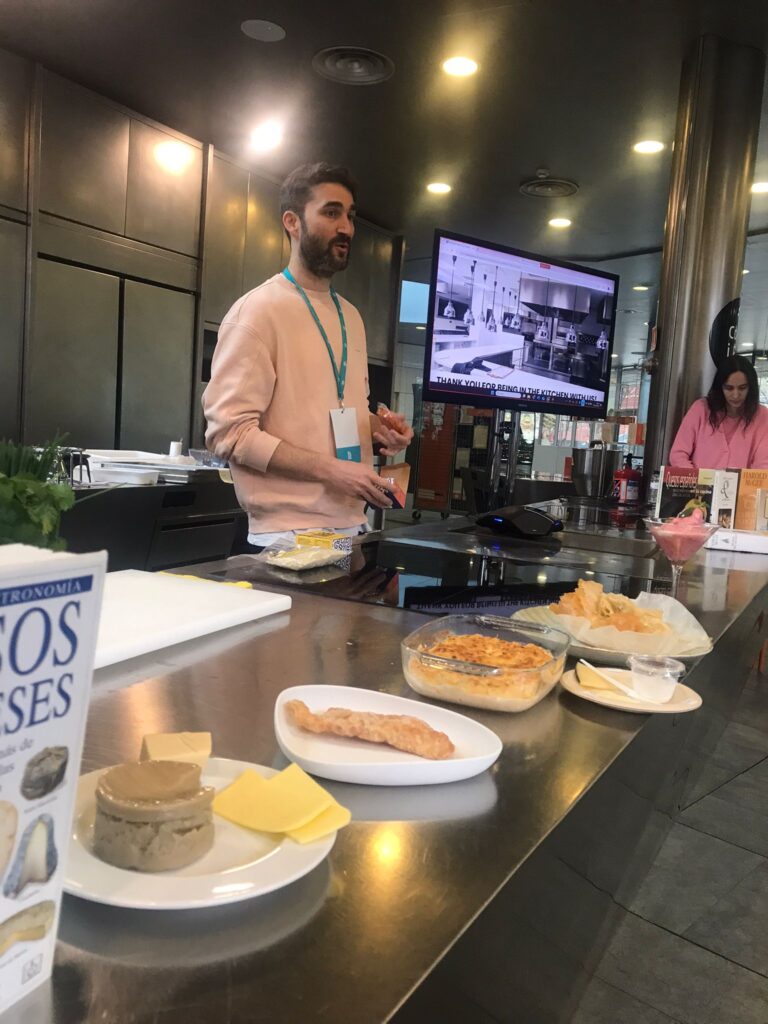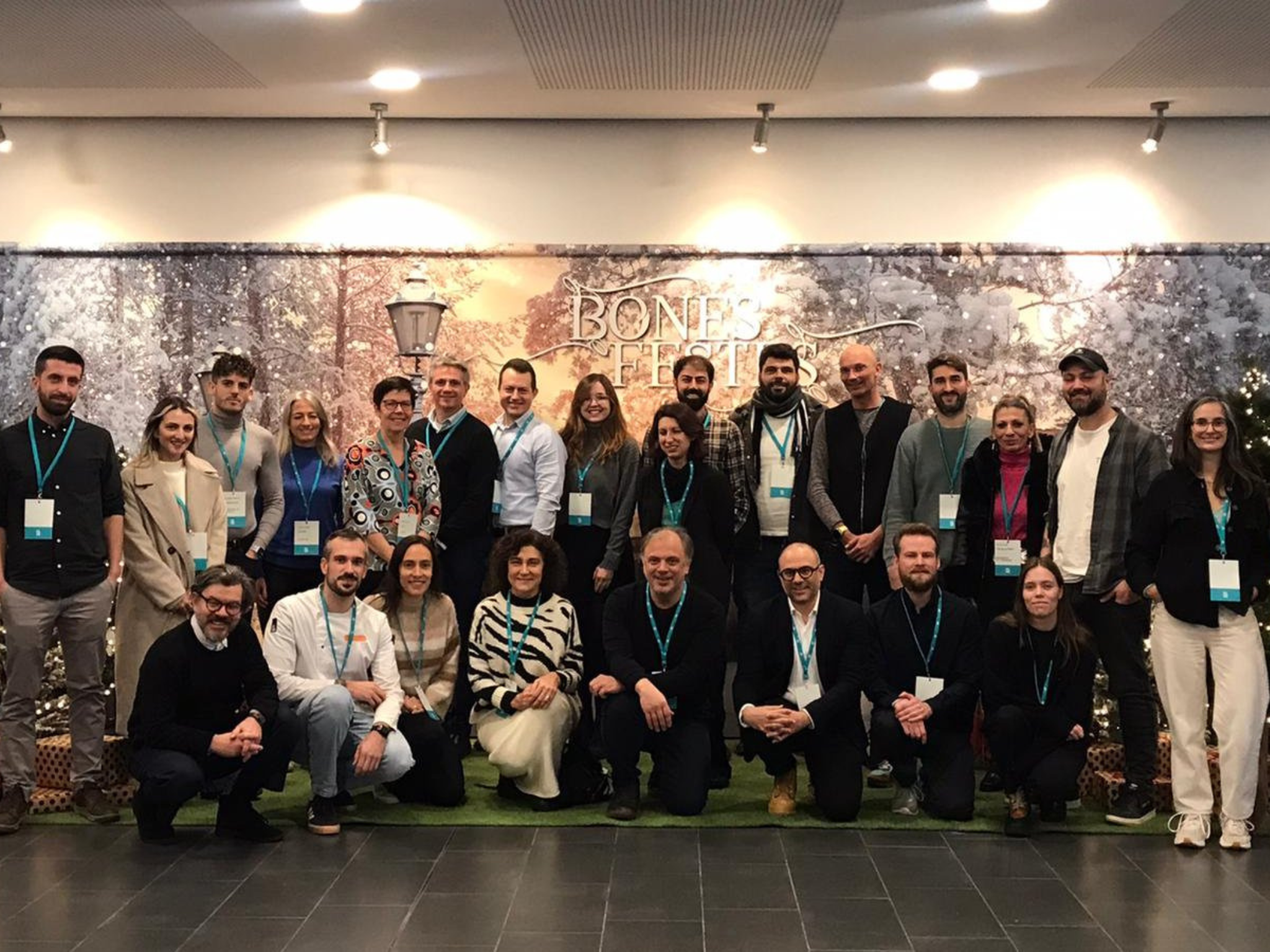EU Invests €5M in Fermentation Project to Create Better-Tasting Vegan Cheeses & Kefir
4 Mins Read
The EU is banking on fermentation to fuel the protein transition through better-tasting, more nutritious vegan cheese and kefir products.
With vegan cheese the fastest-growing plant-based category in several European markets, the EU is investing millions into a project aimed at improving the taste, texture and nutritional value of non-dairy cheeses.
The Delicious initiative, coordinated by the Research Institutes of Sweden (Rise), brings together 17 entities from nine countries – from research centres and universities to SMEs and large companies – to create next-gen dairy alternatives.
We will focus on semi-hard cheeses like Gruyère, manchego, comté, etc. as there is a gap in this category regarding plant-based alternatives.
Max Boniface, co-founder and CTO, Väcka
Backed by a €5M investment from the EU’s Horizon Europe programme, the four-year project will blend plant-based raw materials with inputs derived from precision fermentation, yeast biomass and fibre-producing microbes to obtain the desired sensory properties without additives, artificial flavours, or ultra-processing.
“By integrating advanced technology with consumer insights, we aim to accelerate the shift towards plant-based diets and set a new standard for the plant-based dairy industry,” says project coordinator Charilaos Xiros, a senior researcher at Rise.
Cutting-edge tech will help develop better vegan cheese

The Delicious programme convenes several fermentation startups focused on alternative proteins and fats, including Arbiom, Melt&Marble, and Väcka.
“We will focus on semi-hard cheeses (Gruyère, manchego, comté, etc.) as there is a gap in this category regarding plant-based alternatives,” Väcka co-founder and CEO Max Boniface tells Green Queen. “The idea is to be able to mimic the texture, behaviour and flavours of that category.”
When it comes to non-dairy cheese, he believes semi-hard and hard cheeses often lack the flavours and textures that could satisfy potential customers, and don’t melt the same way their conventional counterparts do. “Texture and elasticity are not hitting the expectations,” he says.
Indeed, 30% of Europeans aren’t familiar with fermented vegan cheese, according to a 2024 survey of over 7,800 people. And more than one in five who have tasted these products don’t consume them, highlighting a major gap in satisfaction.
Väcka, which has a suite of vegan cheese products made from fermented melon seed milk, will work with partners in the project to create sustainable production models for the fermentation sector. The entities will use cutting-edge technologies like data analysis through machine learning and bioinformatic tools to enhance the sensory properties of dairy alternatives and significantly lower product development costs.
Combined with high-throughput screening, they aim to identify the optimal blend of plant-based ingredients and fermentation processes to streamline the development of new products that are better for our health, tastebuds, wallets, as well as the planet.
“Delicious represents a step forward to accelerate the transition towards more sustainable diets and establish new standards for the plant-based dairy sector,” argues Xiros.
Delicious project to spawn many IP breakthroughs

Through the initiative, the EU wants to reduce the climate impact of dairy production by at least 30% when compared to the existing conventional processes. Vegan alternatives can dramatically lower emissions – and this is key, considering that meat and dairy production accounts for 84% of the region’s agrifood emissions.
The EU already has goals to cut emissions by 55%, and farmer groups, agricultural lobbies, and climate organisations are jointly calling on policymakers to introduce a region-wide action plan for plant-based food by next year.
To accelerate the protein shift, Horizon Europe has simultaneously backed the Sustain-a-bite project, which is focused on developing whole-food plant-based meat from upcycled ingredients to tackle concerns around ultra-processed foods (UPFs).
But dairy remains the largest vegan category in Europe. Milk alternatives alone made up 41% of all plant-based sales in the continent’s top six markets in 2023, while yoghurt and cheese together accounted for another 14%. The latter saw retail sales grow by 7%, with volume up by 9%, per the Good Food Institute Europe.
“During the [Delicious] project, we will develop a dedicated AI model that will gather data both from precision and traditional fermentation,” Boniface says. “The matrix that will be used for the project will come from precise fermentation products, and also regular ones.”
He adds that the project is focused on scientific advancements. “There will be many IP [breakthroughs] and innovations coming out from here,” he explains. “It’s a bit soon to know if there will be a new jointly created brand but we, at Väcka, will be the first to take advantage of those innovations and apply them to our existing or new products.”



